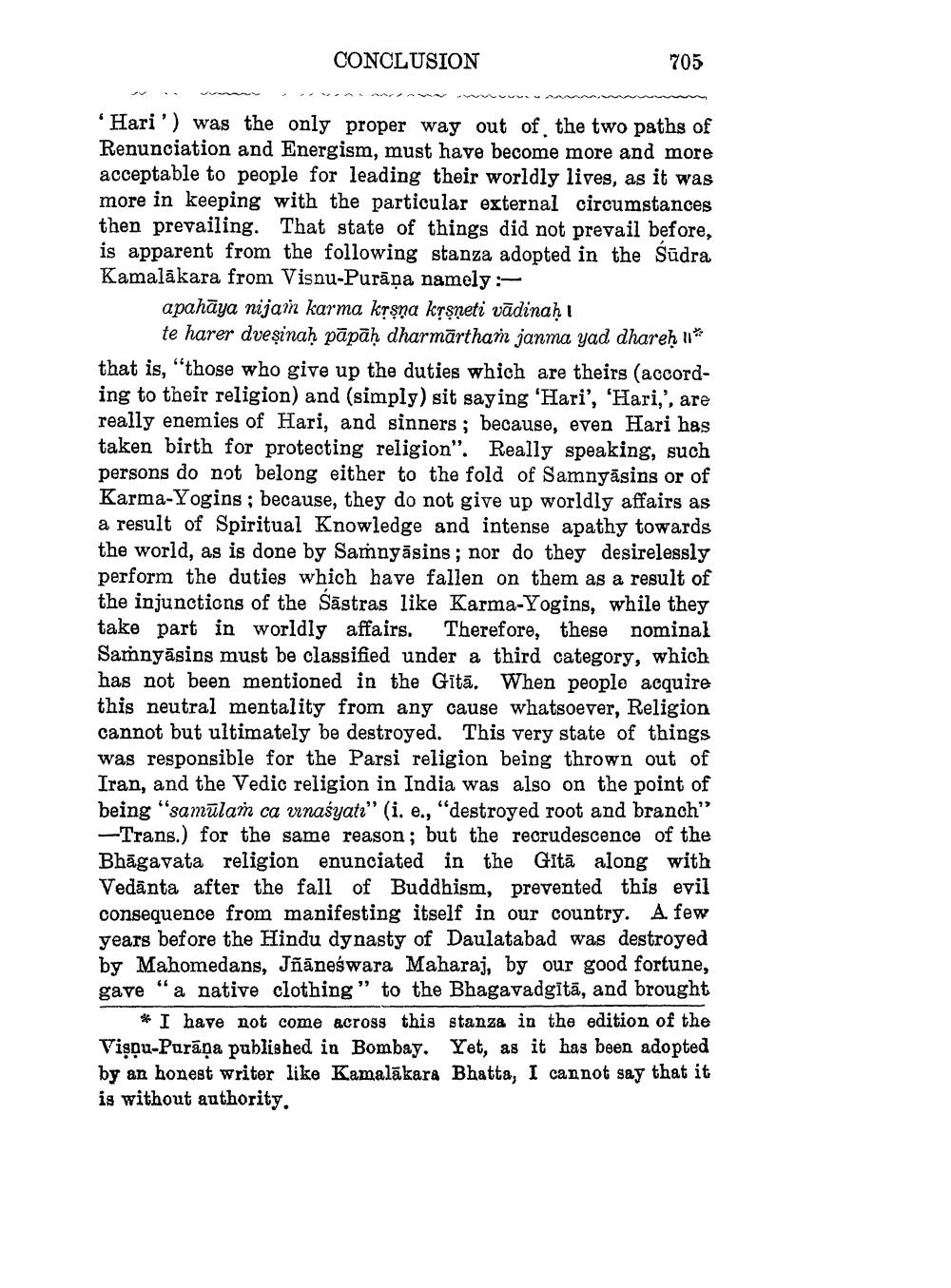________________
CONCLUSION
705
Hari') was the only proper way out of the two paths of Renunciation and Energism, must have become more and more acceptable to people for leading their worldly lives, as it was more in keeping with the particular external circumstances then prevailing. That state of things did not prevail before, is apparent from the following stanza adopted in the Sūdra Kamalakara from Visnu-Purāņa namely:
apahāya nijam karma krsna krsneti vādinah
te harer dveşinah pāpāh dharmärtham janma yad dharen 11* that is, "those who give up the duties which are theirs (according to their religion) and (simply) sit saying 'Hari', 'Hari,', are really enemies of Hari, and sinners; because, even Hari has taken birth for protecting religion". Really speaking, such persons do not belong either to the fold of Samnyāsins or of Karma-Yogins; because, they do not give up worldly affairs as a result of Spiritual Knowledge and intense apathy towards the world, as is done by Samnyāsins; nor do they desirelessly perform the duties which have fallen on them as a result of the injunctions of the Sāstras like Karma-Yogins, while they take part in worldly affairs. Therefore, these nominal Samnyāsins must be classified under a third category, which has not been mentioned in the Gītā. When people acquire this neutral mentality from any cause whatsoever, Religion cannot but ultimately be destroyed. This very state of things was responsible for the Parsi religion being thrown out of Iran, and the Vedic religion in India was also on the point of being "samūlam ca unaśyatı" (i. e., "destroyed root and branch" -Trans.) for the same reason; but the recrudescence of the Bhāgavata religion enunciated in the Gītā along with Vedānta after the fall of Buddhism, prevented this evil consequence from manifesting itself in our country. A few years before the Hindu dynasty of Daulatabad was destroyed by Mahomedans, Jñaneswara Maharaj, by our good fortune, gave "a native clothing" to the Bhagavadgitā, and brought
* I have not come across this stanza in the edition of the Vispu-Parāņa published in Bombay. Yet, as it has been adopted by an honest writer like Kamalakara Bhatta, I can not say that it is without authority.




